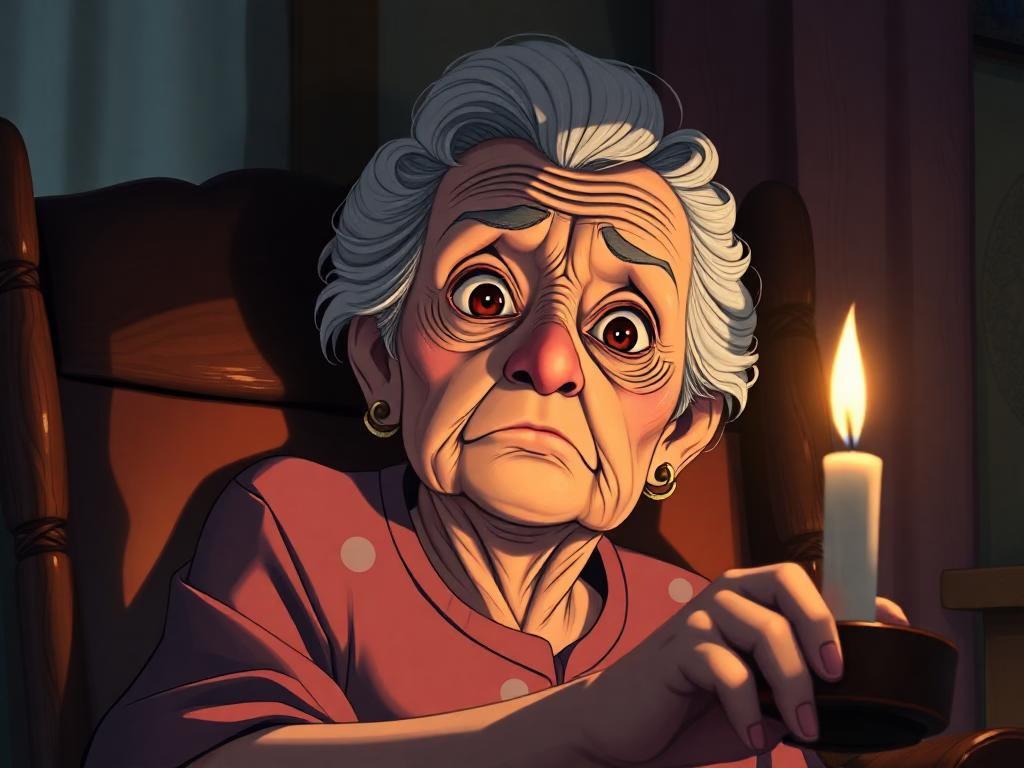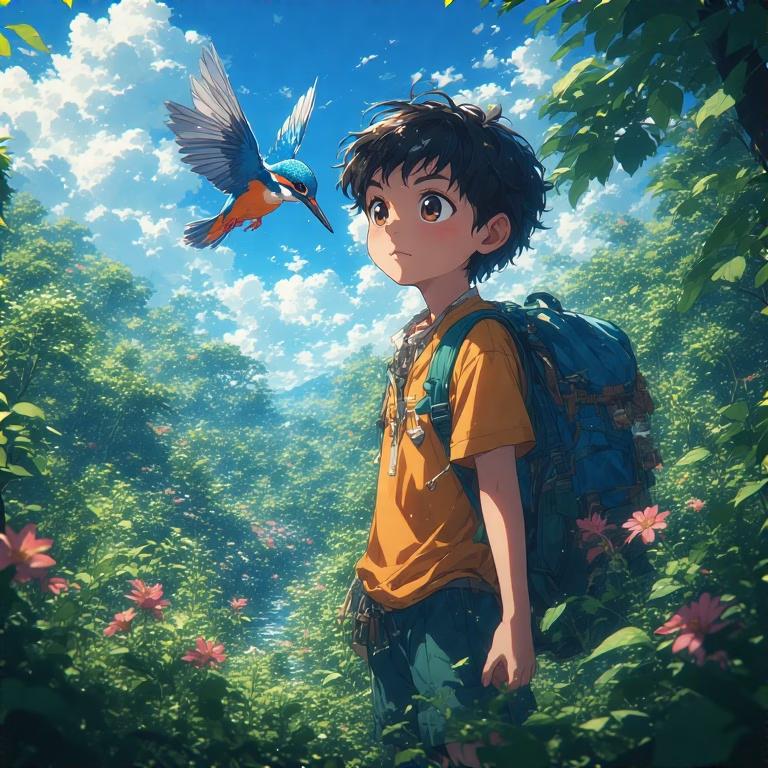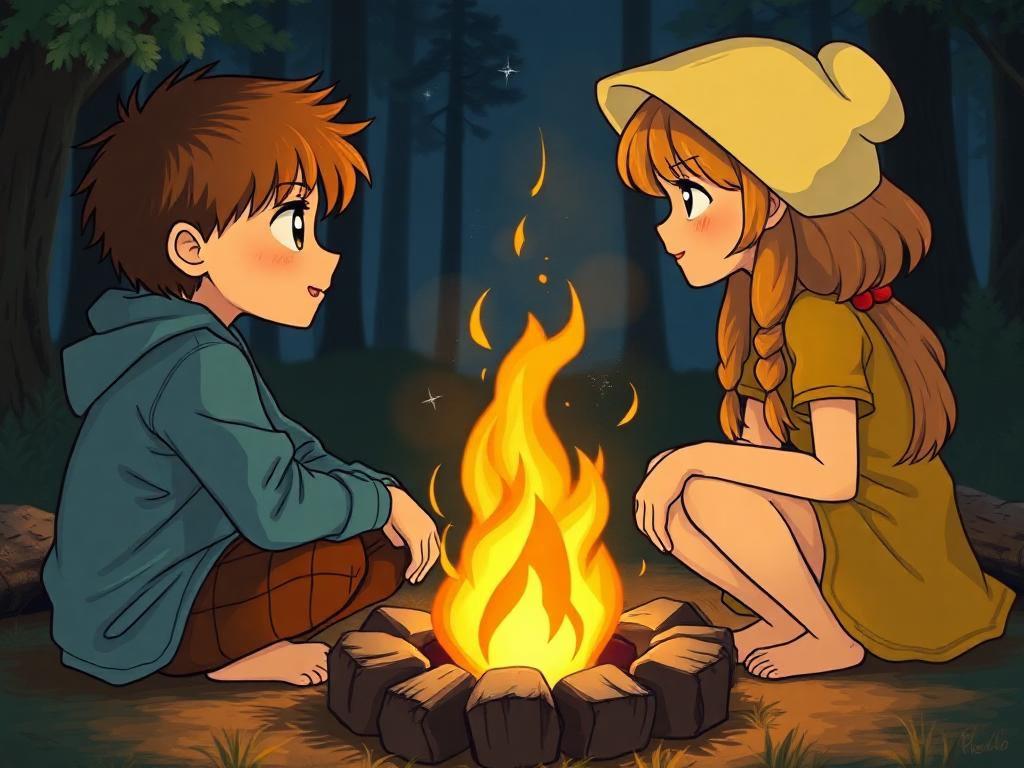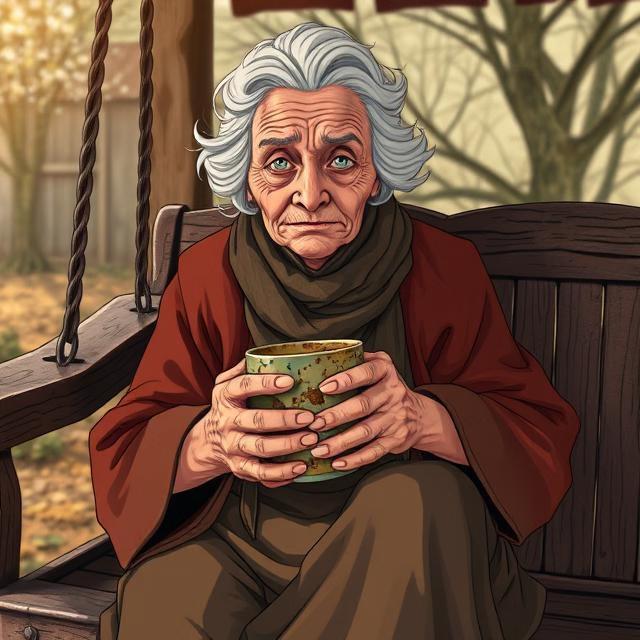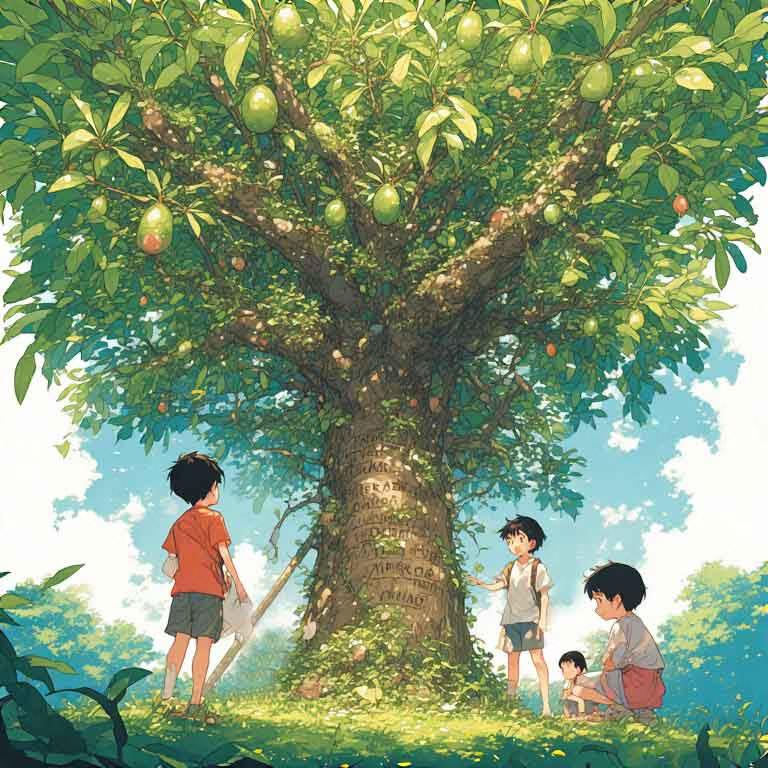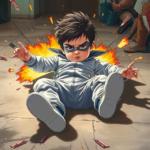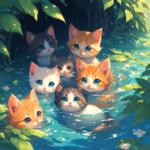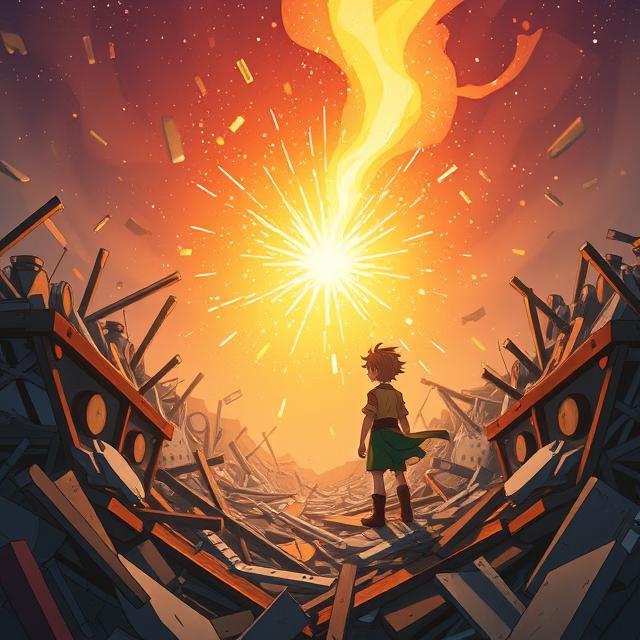
Elara lived in the Scrap Heap, a sprawling city built on the bones of the old world. Towers of discarded metal reached for a sky perpetually choked with orange dust. The air tasted metallic, a constant reminder of what they had lost. The sun, a hazy, weak disc, offered little warmth.
Elara’s grandson, Ren, scampered towards her. He was small for his seven years, his clothes patched with scavenged fabric. His eyes, though, held a spark of the old world’s brightness. He clutched a rusted gear in his hand.
“Grandma,” he said, his voice high and clear, “Look! A perfect circle!”
Elara smiled. Her face, a roadmap of wrinkles, softened. “It is beautiful, Ren. What will you make with it?”
Ren’s brow furrowed in concentration. “Maybe… a wheel? For a cart? To carry more scrap?”
Elara chuckled. “Always thinking of work, my little scavenger.” She ruffled his dusty hair. “But a wheel needs an axle, and axles are hard to find.”
Ren’s face fell. The hope in his eyes dimmed. The harsh reality of the Scrap Heap was a constant weight, even for a child.
Elara felt a pang of sadness. She wished she could give him more. A world with blue skies, green trees, singing birds. A world with stories that weren’t just echoes of loss.
“Don’t worry,” she said, her voice gentle. “We’ll find something. We always do.”
That evening, the wind howled. It rattled the corrugated metal sheets that made up their shack. The dust seeped in, coating everything in a fine, gritty film. Ren shivered, despite being wrapped in a patched-up blanket.
“Grandma,” he whispered, “Tell me a story about the Before Times.”
Elara sighed. These stories were both a comfort and a torment. They painted a picture of a world so vibrant, so full of life, that it made the present seem even bleaker. But they were all Ren had.
“Alright,” she said, pulling him closer. “Tonight, I’ll tell you about the ocean.”
She described the vastness of the water, the way it shimmered under the sun, the creatures that swam within it. She spoke of waves crashing on sandy shores, of the salty tang of the air. Ren listened, his eyes wide, his imagination painting pictures that his reality could not provide.
The next day, a rumor spread through the Scrap Heap. A caravan was coming. Caravans were rare, bringing goods from the distant settlements, places said to be less ravaged by the Rust. They traded for scrap, offering precious things like clean water, seeds, and sometimes, even tools.
Excitement rippled through the Scrap Heap. People sorted through their meager possessions, hoping to find something worth trading. Ren, clutching his rusted gear, looked at Elara with hopeful eyes.
“Grandma, maybe they’ll have an axle!”
Elara felt a familiar knot of anxiety. Caravans were also known for their ruthlessness. They held the power, and they knew it. They could drive a hard bargain, leaving the people of the Scrap Heap with even less than they had before.
The caravan arrived in a cloud of dust, pulled by massive, mutated lizards. The traders, clad in thick, protective clothing, looked down on the scavengers with disdain. Their leader, a woman with a scar that bisected her face, surveyed the offerings with a critical eye.
Ren, emboldened by his desire for the axle, stepped forward. He held out his rusted gear. “Please,” he said, his voice trembling slightly, “Do you have an axle that would fit this?”
The scarred woman sneered. “That piece of junk? Worthless.” She turned to walk away.
Elara stepped in front of her. Her old body was frail, but her eyes held a fierce determination. “It may be worthless to you,” she said, her voice surprisingly strong, “But it represents hope to him. Hope for a better future. Surely, that is worth something.”
The scarred woman paused. She looked at Elara, then at Ren, his small face filled with a desperate plea. Something flickered in her eyes, a hint of something other than cold calculation.
She rummaged through a bag and pulled out a small, surprisingly clean, metal axle. It was slightly bent, but otherwise perfect.
“Here,” she said, her voice gruff. “Don’t expect any more favors.”
Ren gasped. He took the axle, his fingers tracing its shape with reverence. He looked at Elara, his eyes shining with tears of joy.
“Thank you,” he whispered to the scarred woman. “Thank you.”
The woman just grunted and turned away. But as she walked, Elara thought she saw a faint smile play on her lips.
That night, as Ren slept soundly, clutching his axle, Elara sat outside their shack. The wind still howled, but it didn’t sound as menacing anymore. The dust still swirled, but it seemed to carry a hint of something else, something… hopeful.
She looked up at the hazy sky. Somewhere, beyond the dust, beyond the Rust, there were stars. She had seen them once, long ago. She believed they were still there.
The subtle theme of hope, even in the bleakest of circumstances, resonated throughout the story. The cultural relevance lay in the depiction of a post-apocalyptic society, a common trope that reflects anxieties about environmental degradation and societal collapse.
The conflict between the scavengers and the traders was resolved not through violence, but through a spark of empathy, a recognition of shared humanity. Elara’s plea, highlighting the value of hope, touched something within the hardened trader, leading to a satisfying, albeit small, victory.
And Ren, with his rusted gear and his newly acquired axle, represented the future. A future built on ingenuity, resilience, and the enduring power of a child’s dream. The plastic bird Elara was making, a symbol of a lost world, also held a quiet promise: that even in the ruins, beauty could still be created, and hope could still take flight. The wind whispered through the scrap, a song not of loss, but of possibility.
